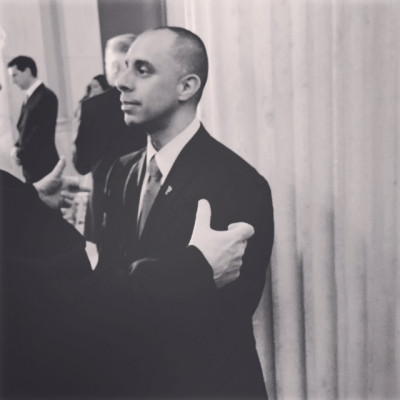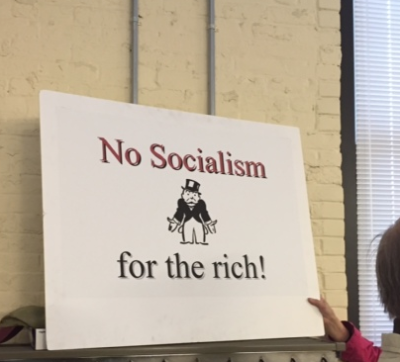National Stadium Expert: Public Should Not Subsidize PawSox to Stay in Pawtucket
Saturday, January 28, 2017
A new report shows McCoy rehab and rebuild costs, and a leading economist says no taxpayer dollars for either, or another location.
“As an economist, I would personally advocate for no public money beyond a provision to infrastructure around the stadium to fans can get to the games,” said Victor Matheson, who is a Professor of Economics at Holy Cross, whose focus is on sports. “That being said, there are certainty sports fans who think that having a AAA team in town is a nice amenity for local residents so might be worth some public money. So, some level of ask might be able to get public support.”
The 182 page report, which was paid for by PawSox owners, the City of Pawtucket, and State of Rhode Island, outlined what would be needed to fix the 75-year old facility, whose lease from the state expires in 2021.
GET THE LATEST BREAKING NEWS HERE -- SIGN UP FOR GOLOCAL FREE DAILY EBLASTThe consultants themselves concluded that the “typical goal of a public investment of this nature, to generate a significant return on that investment driven by ancillary development around a new stadium - will ever be realized at this site.”
Meanwhile, Matheson spoke to reports that the PawSox ownership could be eyeing the site where Apex currently stands in Pawtucket - which was not evaluated in the report.
“If stadium construction is wildly unprofitable at the existing site, there is no reason to believe that another site in Pawtucket would fare much better in the analysis,” said Matheson. “My guess is that a downtown Providence stadium like the previous proposal would have a slightly higher chance of providing an increase in attendance or neighborhood spillovers, but again not enough to justify a big subsidy.”
Picking Apart the Report
Upon reviewing the report, Matheson offered the following.
“Page 132 and 134 say it all,” said Matheson. “Spending $68 million on a major rehab gets you about $22 million back over time. That's a pretty big negative return. Spending $94 million on a new stadium gets you about $24 million back over time. That's even worse.”
“It makes sense to do whatever the owners are willing to pay to have done,” said Matheson. “If they are willing to pay an extra $9 million per year in rent, then build them whatever stadium they want. If they expect the taxpayers to do it all, rehab the stadium just enough to keep it from falling down.”
There has been no ask from the collective billionaire ownership of the PawSox since April 2015, when the owners put forth a proposal for an $85 million stadium in Providence on 195 - that could have cost taxpayers $4 million a year, and drew the rebuke of Governor Gina Raimondo and outraged taxpayer and citizen groups.
“Given the bridges that were burned by the audacious money job by the new owners the first time through, I would be shocked if taxpayers/legislature agreed to give money without at least a 1:1 contribution by the owners,” said Matheson. “I have been wrong before about this, and the taxpayers might become more willing if the PawSox had a credible threat to relocate out of the state - which they don't at the current time.”
SLIDES: PawSox Stadium Aftermath - 2015
Related Slideshow: PawSox Stadium Aftermath: Winners and Losers
The Providence baseball stadium looked like a sure thing. Powerful owners pushing the project. Top politicians coupled with influential lobbyists and PR consultants all on board. Then, everything changed.
Related Articles
- Moore: RI is Too Poor To Bid For Pawsox
- NEW: PawSox Stadium Opponents Declare Success, Rally Planned for Thursday
- Doyle Out as Public Relations for PawSox Owners
- What Does the Future Hold for the PawSox?
- Aponte Says Talks with PawSox Ownership About Victory Place Forthcoming
- PawSox Stadium Winners and Losers: The 2nd Bloodless Revolution
- PawSox Providence Stadium is Dead Says Speaker Mattiello
- Guest MINDSETTER ™ Berwick: The Best Deal for RI Taxpayers is to Keep PawSox in Pawtucket
- Skeffington Breaks Promise to Disclose What He Was Paid on McCoy Bonds
- NEW: PawSox Organizer Norton to Run for General Assembly
- PawSox Owners Poised for Another Ask for Public Subsidies - This Time in Pawtucket
- Breaking News: Pawtucket Red Sox Owner Dies
- Providence Preservation Society Opposes 195 Location for Stadium
- Bishop: Keeping the Pawtucket Red Sox Without Seeing More Red in Providence
- Guest MINDSETTER™ Don Grebien: McCoy Stadium, Where History Still Lives
- Guest MINDSETTER™ Robert Billington: Welcome Home Pawtucket Red Sox
- Guest MINDSETTER ™ Art Norwalk: Should We Swing at the PawSox Owners’ Next Pitch?
- 12 Reasons Why the PawSox Move to Providence is in Peril
- PawSox New Leadership Team - Dr. Charles Steinberg Replaces Mike Tamburro
- VIDEO - What the PawSox Stadium Would Look Like in Worcester
- PawSox to Seek Proposals for Stadium Upgrades
- PawSox Cancel “Presidential Primary” Day at McCoy After Fan Reaction
- EDITORIAL: Not One Penny of Public Money for the Billionaire PawSox Owners
- Rice, Boggs & Mondor to be Inducted Into PawSox Hall of Fame
- ABC6’s “In The Arena” - Debate Subsidy for Billionaire PawSox Owners
- PawSox Attendance is Down 50% Through First Six Games in 2016
- PawSox Owners and Commerce Board Member Close $900 Million Fund
- PawSox Press Conference: Lucchino Introduces New Leadership Team
- Has the PawSox Brand Been Damaged This Year?
- PawSox Hall of Fame Coming to McCoy Stadium






















